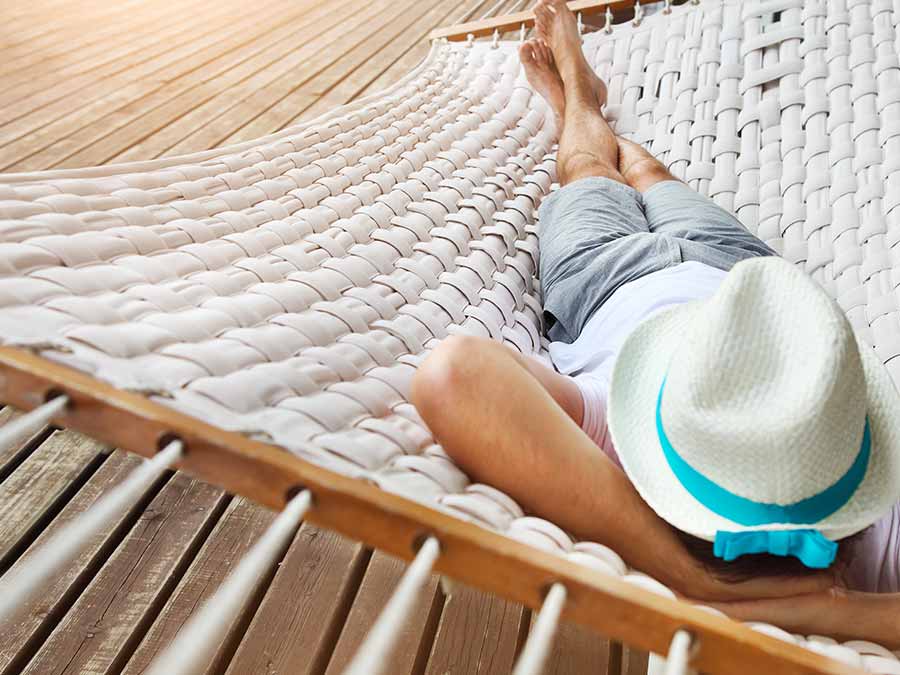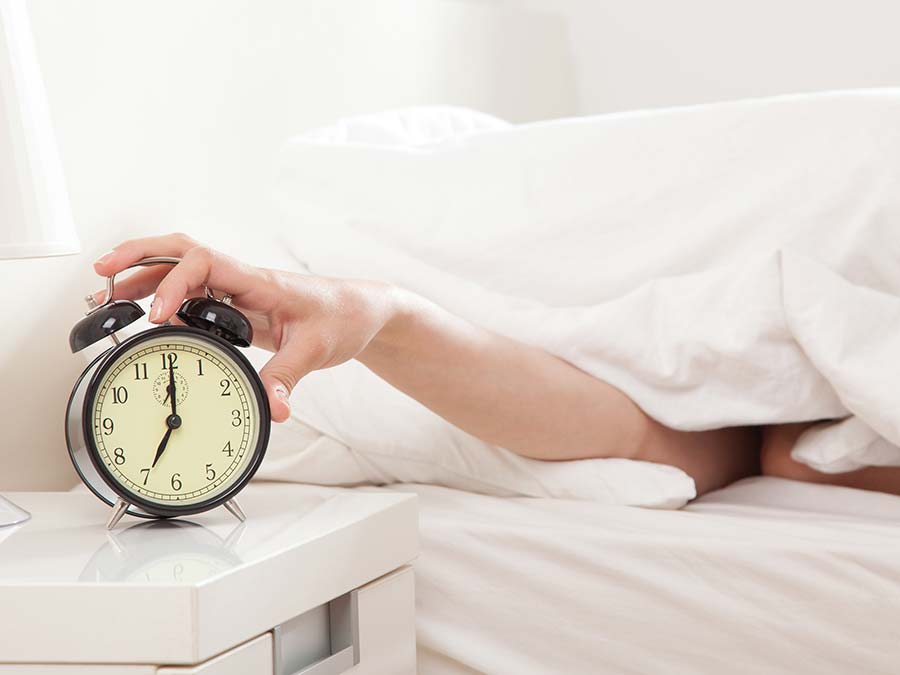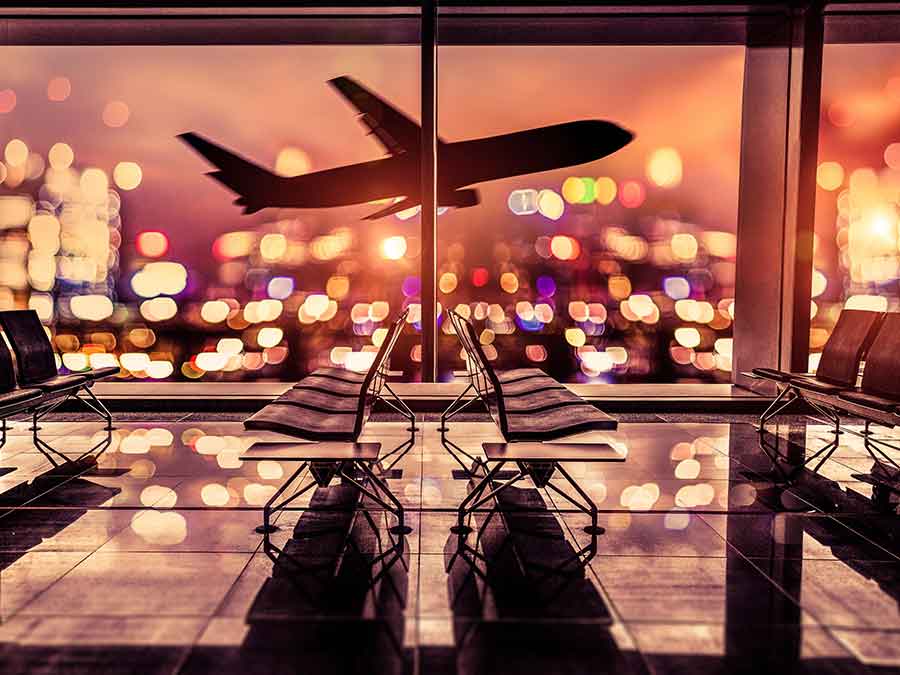
Jet lag: What is it and how to beat it
Jet lag can put the brakes on your first days of travel, so how can you manage its symptoms?
Manage and prevent jet lag symptoms
Nothing can put a dampener on your first days of travel like jet lag. A morning arrival after a sleepless flight can leave you feeling like the walking dead and throw out your body clock for days to come.
Jet lag isn’t just frustrating; it’s also potentially dangerous. Sleep deprivation, even in the short term, can seriously impact your mind and body - at a time when you need them the most.
Thankfully, there are some simple ways you can treat the common symptoms of jet lag, and reduce your chance of suffering from it in the first place.
What is the meaning of jet lag?
Also known as desynchronosis or ‘flight fatigue', jet lag is caused by a disconnection between your internal body clock and the time zone of your destination. For example, if you arrive at your destination bright and early in the morning when your body is usually preparing for sleep, you may experience temporary sleep deprivation and the side effects that come with it.
Our bodies are regulated by 24-hour circadian rhythms, which can be disrupted by unexpected exposure to sunlight and darkness that goes against our daily routine. Flying across time zones can cause our internal body clock to become out of sync, affecting the regular function of our mind and body.
Common symptoms of jet lag
Tiredness and insomnia are the most well-known symptoms of jet lag, but the condition has far more effects than you may expect. Flying across time zones can upset our cognitive abilities, our metabolism and even our digestive health.
The main symptoms of jet lag are:
- Tiredness
- Insomnia
- Anxiety
- Confusion
- Headaches
- Dizziness
- Irritability
- Sweating
- Memory loss
- Nausea
- Indigestion
- Diarrhoea.
7 tips to beat jet lag
These symptoms don’t sound pleasant, especially when you’re supposed to be enjoying the first days of a holiday. But if you find yourself a bit under the weather when you land, the following seven tips can help you to get back on your feet in no time.
1. Eat the right meals at the right times
If you land in the morning feeling completely out of rhythm, one of the best ways to set your body on its natural course is to feed it correctly. That means eating a nutritious breakfast in the morning, having your lunch at midday and dinner a few hours before bed - just as you would normally do at home.
It can be tempting to load up on caffeine through coffee or energy drinks to “get you through the day”, however this can do more harm than good because caffeine is proven to disrupt your body’s internal clock.

2. Resist the urge to nap
A midday nap can be an irresistible temptation when checking into your hotel, especially if you didn’t sleep a wink on the plane. But just like your meal schedule, it’s important that you start to align your sleeping pattern to the local time zone.
However, forcing yourself to stay active while you’re falling asleep on your feet can be dangerous. Plan your trip to grant yourself a relaxing first day of travel focussed on easing into your destination, while saving the serious sightseeing for when the jet lag has subsided.

3. Stay hydrated
Seasoned travellers know that dehydration is a common side-effect of air travel, especially on long-haul flights. Passengers can experience dehydration for a few reasons, including the influence of cabin pressure, drier outside air, excessive coffee or alcohol consumption, and even the urge to avoid drinking water in an attempt to reduce those pesky mid-flight bathroom breaks.
However, dehydration can worsen the effects of jet lag, which is why it’s important to stay hydrated throughout your flight and once you land. Picking up an electrolyte sports drink when leaving the airport can be a good way to replace lost salts and improve your hydration.
4. Feel the sun
Sunlight is an essential ingredient in resetting circadian rhythms. If you land in the morning and hide away in your hotel room for the rest of the day, you won’t give your body the signals it needs to adjust to the local time zone.

5. Jet lag pills & medicine: Try a melatonin supplement
There’s no magic pill for jet lag, but some researchers believe that over-the-counter supplements containing melatonin can be beneficial in subduing its effects. Alon Avidan, director of the UCLA Sleep Disorders Centre, says that a low dose of melatonin supplement can assist your body in acclimatising to a new time zone.
6. Modify your bedtime in the days before your flight
Depending on your destination, it may be possible to pre-adjust your body clock in the days leading up to your departing flight to lessen the discrepancy between your body clock and the new time zone. There are phone apps to help you manage this process, which we’ll dive into shortly.
7. Get some exercise when you land
Outdoor exercise can speed up the process of your circadian rhythm adjusting to a new destination. However, remember not to over-exert yourself or risk dehydration - light physical exercise will do the trick.
How long does jet lag last?
How long your jet lag lasts can depend on the length of your flight, time of arrival and personal health factors. However, symptoms of jet lag generally start to ease within a few days of arrival as your body adjusts to the new time zone.
The frequent fliers among us, such as pilots, cabin crew and business travellers, can sometimes develop chronic sleep problems like insomnia due to repeated jet lag cycles. But for most of us, jet lag is a temporary condition that improves in a matter of days.
4 mobile phone apps to help with jet lag
Hydration, light exposure and healthy eating are all simple ways to manage the symptoms of jet lag, but if you’re looking for some more high-tech solutions, these four mobile phone apps are here to help.
1. Calm
A mid-flight nap can often be the difference between arriving like the walking dead or landing refreshed and ready to explore. But with the whir of engines, the chatter of other passengers and the constant ding of seatbelt signs, planes are hardly conducive to a good night’s sleep.
Calm is an award-winning sleep and meditation app designed to improve relaxation through sleep stories, guided meditations, soothing soundtracks and breathing exercises. Invest in some high-quality noise cancelling headphones, slide on your eye mask and click play on a 20-minute guided meditation to find yourself drifting off to sleep while drifting among the clouds.
2. SeatGuru
Beating jet lag can even start when booking your flights. The SeatGuru app provides a database of customer reviews on the quality of individual plane seats on all kinds of aircraft, so you can make an informed decision about which seat will give you the best chance of in-flight shut-eye.
3. Timeshifter Jet Lag App
As we mentioned, adjusting your body clock in the days leading up to your departing flight can be a great way to lessen the effects of jet lag when you land. The Timeshifter Jet Lag App is a scientifically-backed tool to create a jet lag plan that includes pre-departure adjustments to your schedule and tactics for when you land.
4. Jet Lag Rooster
Like Timeshifter, Jet Lag Rooster can be used to generate a pre-departure plan to reduce the severity of jet lag once you land. While not as robust in features as Timeshifter, Jet Lag Rooster is a quick and free online calculator.
How to avoid getting jet lag
Mobile apps can help, but you don’t need to rely on smart technology to help you avoid jet lag in the first place. For a healthy flight, remember to:
- Prepare your body for a change in time zones a few days before you fly. This could mean adjusting your bedtime or meal schedule.
- Stay hydrated but avoid alcohol and caffeine, which can reduce sleep quality.
- Remember to stretch your legs. Exercise is key in regulating your body, and even a few walks up the aisles can help.
- Eat light onboard. A study from the Harvard Medical School even suggests that fasting while flying can help your body adjust to a new time zone when you land.
- While flying, layer your clothing, wear breathable fabrics and prioritise comfort over style.
Flying east or west makes a difference to jet lag
On the surface, it may sound strange that the direction of your flight can impact the severity of your jet lag when you land. However, it’s true that flying east or west can make a difference to jet lag.
Flying east is generally considered worse for jet lag because you’re crossing multiple time zones at once in a reverse direction. However, the true cause is more complex and has to do with your circadian rhythm’s “phase direction”.
Regardless of the complicated science, a good rule of thumb is to take extra care if you’ll be flying in an easterly direction for a long period.

Jet lag myths and misconceptions
Just like some people think stuffing your socks full of garlic will cure the common cold, there are plenty of old wives’ tales when it comes to beating jet lag. Here are five common rumours about jet lag.
Jet lag myth #1: It doesn’t matter which way you’re flying, jet lag is always bad
The medical community generally agrees that flying west is easier on the body clock than flying east. So if you’re travelling east on a long-haul journey, take extra steps to adjust your body clock beforehand.
Jet lag myth #2: Alcohol will help
Some people believe that alcohol is the key to a deep sleep, but, this definitely isn’t the case. Alcohol reduces sleep quality, can cause dehydration, and leave you feeling groggy and irritable when you land.
Jet lag myth #3: Nighttime flights are best
It sounds like common sense; book a nighttime flight, sleep the entire time, wake up when you land and feel refreshed and ready for your first day overseas. Unfortunately, getting a good night’s sleep in the sky is far easier said than done. Sleepless red-eye flights can worsen jet lag symptoms, so book carefully if you struggle to sleep on the plane.
Jet lag myth #4: Walking barefoot is an easy cure
Wellness advocates and celebrities have promoted the concept of “earthing” or “grounding” as a potential cure to all kinds of ailments, however it’s not a silver bullet when it comes to curing your jet lag symptoms.
While getting some sun can help your circadian rhythm to adjust to a new time zone, walking barefoot in the grass won’t magically cure the dehydration, irritability, insomnia and digestive complaints that can accompany jet lag.
Jet lag myth #5: Movies will help you to fall asleep
While there’s no shortage of boring in-flight movies out there, it’s unlikely that they’ll help you to fall asleep on the plane. In fact, it’s more likely that they’ll do the opposite. The light and sound stimulation of a screen in close proximity to your face will prevent your brain from unwinding, and it’s proven that screen time can disrupt sleep.
The content of this article is general and provided for information purposes only. Southern Cross Travel Insurance (SCTI) doesn’t guarantee or warrant the accuracy, completeness or currency of any article.
This article may contain hyperlinks to other websites owned or operated by third parties, or references to third party products or services. SCTI isn’t responsible for, and makes no recommendation about, the content or accuracy of any third party website, or for the suitability or performance of any product or service. The inclusion of a link in this article doesn’t imply that SCTI endorses the website or third party product/service.





